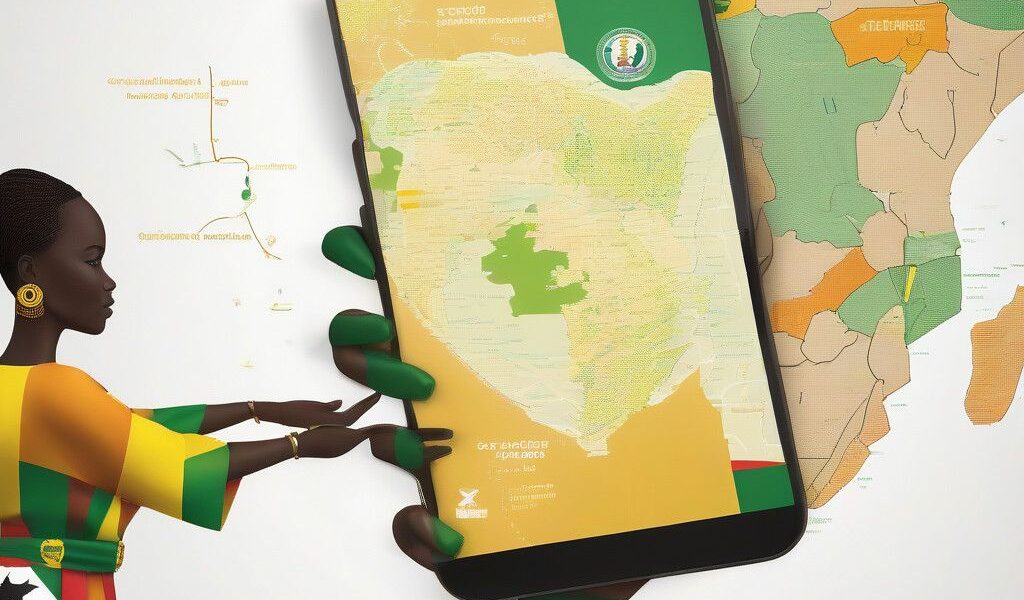Ghana and Gambia Join Forces for ECOWAS Free Roaming Initiative
Ghana and Gambia are collaborating on a significant initiative designed to enhance telecommunications connectivity and reduce costs for travelers between the two nations. This partnership highlights their commitment to the Economic Community of West African States (ECOWAS) and aims to facilitate a seamless communication network that supports economic and social interactions.
As of now, officials from both countries are in the process of negotiating a memorandum of understanding (MoU). This essential document will lay the groundwork for technical and regulatory discussions necessary for the initiative’s successful implementation, expected in the first half of 2025. The ongoing negotiations reflect Ghana’s prior successes in establishing similar agreements with other ECOWAS member states, including Côte d’Ivoire, Benin, and a trilateral deal with Togo and Benin. These previous agreements have successfully reduced costs and improved the quality of cross-border telecommunications.
The ECOWAS Free Roaming Initiative is part of a broader strategy to foster regional economic integration and self-sufficiency among member states. By allowing citizens of Ghana and Gambia to communicate without incurring additional charges while traveling, the initiative not only enhances personal mobility but also strengthens business ties and promotes tourism. This is particularly important in a region where mobile connectivity significantly influences economic activities.
The significance of this initiative cannot be understated. Ghana’s National Communications Authority, along with the Ministry of Communications and Digitalisation, plays a pivotal role in spearheading this project. They recognize that robust telecommunications infrastructure is critical for achieving sustainable development goals within the region.
The concept of free roaming is not new, yet its successful implementation has proven challenging in various parts of the world. ECOWAS’s decision to prioritize this initiative underlines an emerging trend among regional blocs to facilitate free movement of people and goods, ultimately reducing economic barriers. For instance, in the European Union, the abolishment of roaming fees has significantly enhanced travel and business operations among EU nations. The ECOWAS initiative seeks to replicate this success by creating a similar environment in West Africa.
It is also important to consider the broader implications surrounding digital connectivity. As the world becomes increasingly reliant on technology for business transactions and communication, regions that fail to adapt risk being left behind. By fostering a unified telecommunications framework, ECOWAS is not only enhancing the user experience for its citizens but is also preparing countries for future challenges related to digital economies.
Economic data supports the case for enhanced telecommunications connectivity. According to a report by the International Telecommunication Union (ITU), every 10% increase in broadband penetration can lead to a 1.38% increase in gross domestic product (GDP). With countries exhibiting limited connectivity, regions like West Africa have the potential to experience significant economic growth through initiatives like the ECOWAS free roaming agreement.
Moreover, public sentiment favors such initiatives. Surveys conducted by various agencies across West Africa indicate a strong desire for reduced mobile costs and better service quality. This feedback channels the voice of the people into government policy, emphasizing the necessity for regional partnerships.
In conclusion, the collaboration between Ghana and Gambia underscores a collective vision for enhanced connectivity across West Africa. The impending ECOWAS Free Roaming Initiative promises not just to ease communication barriers but also to stimulate economic activity, foster social integration, and promote regional cohesion. As we look towards 2025, the potential benefits of this initiative could serve as a model for other regions striving for similar advancements in communication infrastructure.








